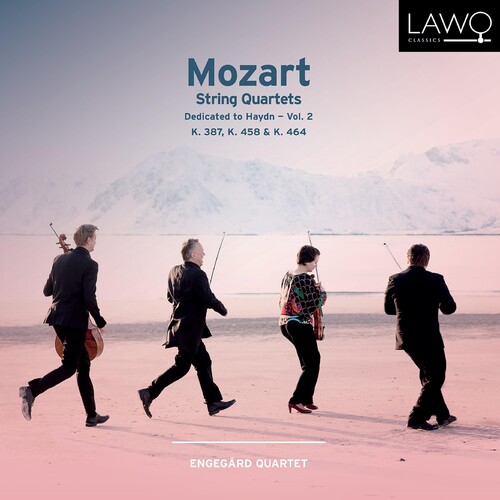Show results for
Deals
- 4K Ultra HD Sale
- Action Sale
- Alternative Rock Sale
- Anime sale
- Award Winners Sale
- Bear Family Sale
- Blu ray Sale
- Blues on Sale
- British Sale
- Classical Music Sale
- Comedy Music Sale
- Comedy Sale
- Country Sale
- Criterion Sale
- Drama Sale
- Electronic Music sale
- Golden Age of Hollywood sale
- Horror Sci fi Sale
- Kids and Family Sale
- Metal Sale
- Music Video Sale
- Musicals on Sale
- Mystery Sale
- Naxos Label Sale
- Page to Screen Sale
- Paramount Sale
- PBS on Sale
- Rap and Hip Hop Sale
- Reggae Sale
- Rock
- Rock and Pop Sale
- Rock Legends
- Soul Music Sale
- TV Sale
- Vinyl on Sale
- War Films and Westerns on Sale

String Quartets 2
- Format: CD
- Release Date: 9/17/2021

String Quartets 2
- Format: CD
- Release Date: 9/17/2021
- Label: Lawo Classics
- UPC: 7090020182414
- Item #: 2425704X
- Genre: Classical
- Release Date: 9/17/2021

Product Notes
With this release, the Engegård Quartet completes it's recordings of the six string quartets that Wolfgang Amadeus Mozart dedicated to his paternal friend Joseph Haydn. Written in Vienna in Mozart's "mature" years - from age 25 until he died 36 years old in 1791 - they are a gift to a friend that hardly has it's equal. He worked on them alongside many other works from 1782 to 1785 and proudly presented them to friends and colleagues, often in his own home. His own son believed he would have become immortal had he written nothing else. Mozart was himself a remarkable violinist and violist. His father Leopold made him aware that being as brilliant a violinist as pianist was simply a matter of the will. There are solo passages in his divertimenti requiring exceptional virtuosity on the part of the concertmaster, passages he very likely performed himself. He played the quartets with some of Vienna's best musicians. Joseph Haydn, himself an able violinist, was among them. We are left to wonder what it sounded like. The level of sound was weaker than that of the Engegård Quartet. The instruments had sensitive gut strings, and the rather straight bow had fewer horse hairs than today. In addition, with probably less string tension, the instruments had a gentler feel, and playing technique was somewhat different. There is evidence for this in Leopold Mozart's own violin method from 1756, the year Wolfgang was born. Thus we would expect the sound to differ from what we hear today, and efforts to recreate it can help us in our conceptions. As a matter of fact, Mozart's own viola can be viewed in Salzburg in the house on Getreidegasse in which he was born.

